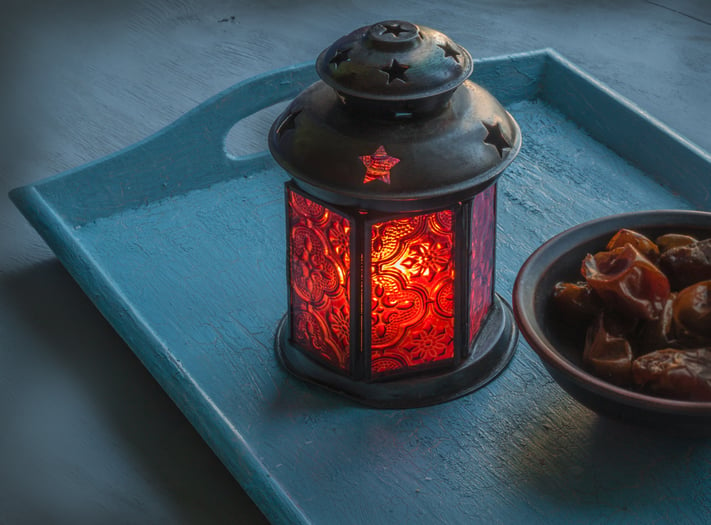
activeNewham is proud to provide health and leisure to one of the most multicultural boroughs in the UK. Bringing people together from all walks of life gives us the opportunity to achieve deeper understanding and celebrate our differences. Newham’s motto after all is “progress with people,” and no matter what your heritage may be, living in a diverse community can be an enlightening experience. From ethnic restaurants, to religious celebrations held throughout the year, each day offers us a glimpse into different part of the world here in Newham.
This year Friday 26 May marks the start of the Ramadan, the biggest act of religious observance in the world. The festival begins with the first sight of the new moon. Ramadan falls on the ninth month of the Islamic calendar which operates on a lunar system, which is why the date falls differently each year on the Gregorian calendar. Muslims believe that the Qur’an was first revealed to the Prophet Muhammad during this month through a series of revelations on the night known as Lailut ul-Qadr (The Night of Power).
Why do Muslims Fast?
Fasting during Ramadan is one of the five pillars of Islam, along with the Muslim declaration of faith, daily prayer, charity and performing the hajj pilgrimage in Mecca. The fast is intended to bring the faithful closer to Allah and to purify oneself both physically and spiritually. It is also a time to increase Muslim's piety through reading the Qur’an, as well as giving to charities and helping the less fortunate.
Fasting is performed by abstaining from eating or drinking during daylight hours. Muslims will wake up before sunrise for morning prayer and will eat before the day's fast begins, known as suhoor. Fast is then broken directly after sunset with an evening meal called iftar.
Now fasting for a month can be good for your health provided that you follow the right methods. Getting the right macros into your diet is something of the utmost importance. When fasting a lot of changes develop in the body. Stored nutrients, especially muscle proteins can be easily broken down to provide fuel for the body. Not to mention that dehydration is also a potential risk.
In order to avoid these risks, here are some quick tips to keep your body at optimum nutrition on a day to day basis.
Suhoor
The pre-dawn meal should consist of wholesome foods which are slow digesting and will provide you with energy for many hours. Ideally oats, lentils, wheat, grains and other complex carbohydrates deliver slow releasing energy which will keep your blood sugar levels steady and will fuel you throughout the day.
High protein foods consisting of eggs, yoghurt and meat are also recommended to keep your macros in balance, as well as fruits and vegetables which naturally contain high water content, keeping you hydrated for longer.
Items to avoid at this time are any sugary processed foods. These are low in nutrients and will make you experience nasty sugar crashes. In addition try to avoid caffeine at all costs. Although I cannot get through a morning of emails without this sweet elixir, caffeine dehydrates the body for it is diuretic that stimulates faster water loss. As water is vital for regulating all of the body's vital processes, it’s best to put that espresso down!
Iftar
Dates hold a special place in Islam both physically and spiritually, for the Prophet Muhammad would consume dates when breaking fast. Dates provide a huge burst of energy which are high in vitamins A and B6, potassium, natural sodium, iron and magnesium. Therefore dates are an ideal food which act like a multivitamin to help your body cope with the demands of fasting. It is recommended that you break fast with 2-3 dates and water before your main meal. This will help the body secrete digestive enzymes as well as kick starting your metabolism which has been resting all day.
Soups are also a great way to help replenish your body with a wide range of vitamins and nutrients quickly. Soups are easy to make, an excellent way to rehydrate the body and are warm and soothing on an empty stomach. Items to avoid at this time are any deep fried foods such as samosas and fried dumplings for these are difficult to breakdown.
Whether you are observing Ramadan or not, please be supporting and aware. This is a time of reflection and compassion, to look after those in need and also yourself. While those who observe fast know they will eat at iftar, there are many people in the world who don’t know where their next meal is coming from. If you are able to give to the less fortunate, or even take a moment to be thankful for what you already have, Newham won’t just glimpse into other parts of the world, but will actively become a better place to work and live during Ramadan.